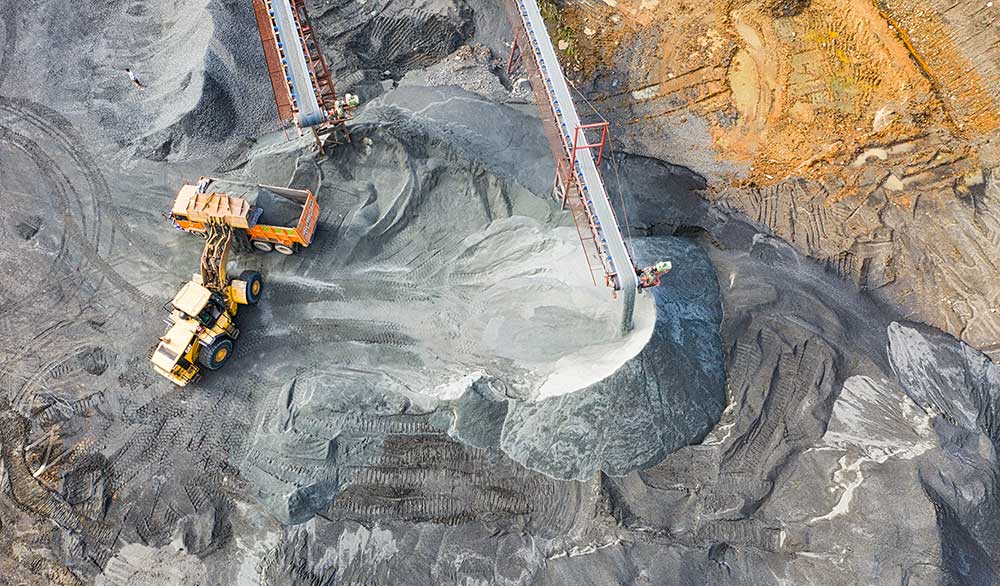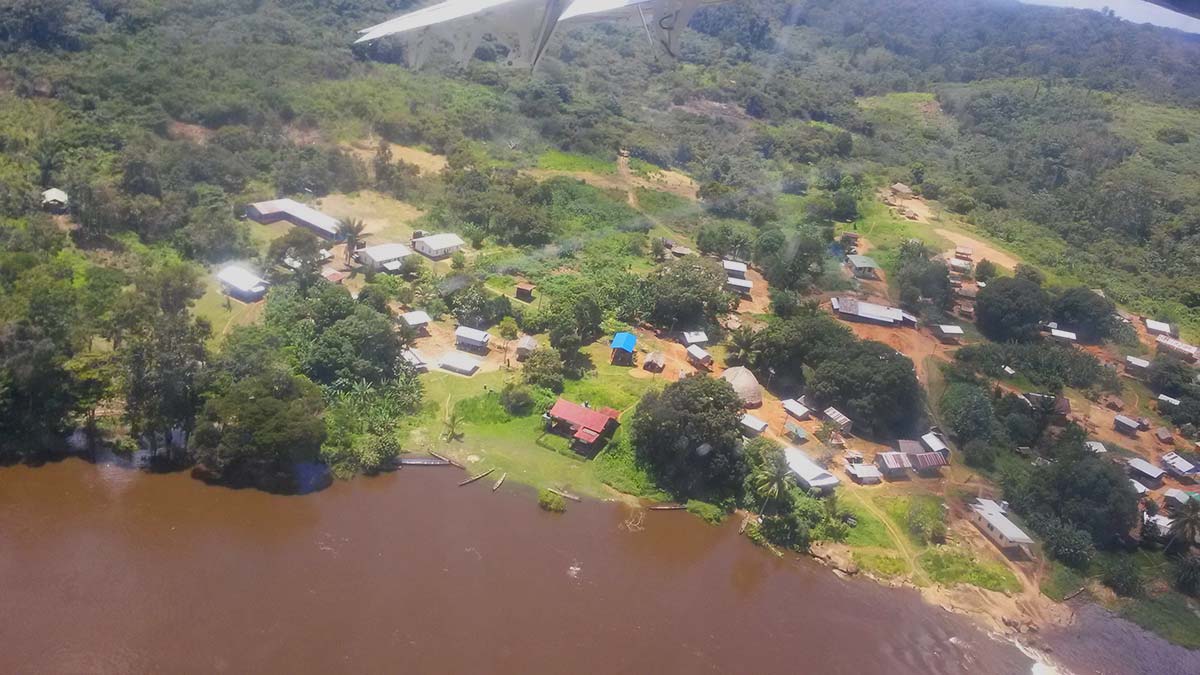Photo by Tom Fisk
The rainforests cherished by the Surinamese are under threat. Ranked 10th globally in the rate of gold mining production relative to the amount of land, deforestation and contamination from mercury are on the rise. Over 41,136 hectares of land have been eaten up by gold mining, with an 893 percent increase since 2000. This increase is from both industrial as well as artisanal and small-scale gold mining (ASGM), the latter of which represents 65 percent of all mining in Suriname.
Widespread small-scale mining is the main source of deforestation in Suriname, but the use of mercury has a wider impact on the country’s ecosystem and on its people. This element makes extracting gold easier and faster. It glues itself to the gold to be separated from the ore, and is then burned off, releasing toxic fumes into the air, with the mercury contaminated waste materials from sluice boxes then dumped into the creeks and rivers.
The harmful effects of mercury are well known to the international community. The World Health Organization recognizes it as among the top ten chemicals dangerous to public health. Mercury can cause severe cerebral impairment and irreparable damage to one’s lungs, intestines, and kidneys.
What makes matters worse, is that mercury contamination doesn’t only threaten the areas where gold is mined. Through air and water, it travels, affecting large populations along the coastline. In what is known as bioaccumulation, small fish eat bacteria contaminated with mercury. Then those fish are eaten by their larger predators, with the mercury contamination increasing as it climbs up the food chain.
This has an especially heavy impact on the daily lives of indigeneous villages in the Amazon forest, such as in Apetina, where fish is one of the most important sources of protein. Due to all the mercury contamination in the fish, they could no longer eat their staple dish, and were forced to find an alternative. The UNDP supported a small community project to help the villagers learn how to manage poultry farming, as they didn’t have any prior experience. While the project was a success, it’s not fair that people are paying the price for activities they didn’t carry out.
Aerial view of Apetina village. Photo by UNDP Suriname
This problem calls for solutions allowing development and environmental protection to coexist, which requires support from the world community and from the Surinamese. An example of the measures taken is the ratification and implementation of the Minamata Convention on Mercury, established to improve small-scale gold mining practices and technologies.
The convention was born out of a similar crisis that took place in Japan, when so many fish contaminated by mercury caused an epidemic of cancer and neurodegenerative diseases among thousands of people. Now the agreement sets the standards for countries worldwide to either regulate the use of mercury, or to ban it altogether.
The United Nations Development Programme (UNDP) has joined forces with other organizations and associations to help Suriname implement the Minamata Convention’s requirements for sustainable mining. With financial aid from the Global Environment Facility (GEF), the UNDP is supporting the important action being taken under the leadership of the Ministry of Natural Resources in collaboration with The National Institute for Environment and Development in Suriname (NIMOS). These actions are:
- The application of Small-Scale Gold Mining practices and technologies that are environmentally friendly, at a specific location (EMSAGS).
- Preparation of the national action plan on Artisanal and Small-Scale Gold Mining (ASGM).
- Preparation of the Suriname Minamata Initial Assessment.
The EMSAGS project seeks to foster cooperation between the Surinamese government and small-scale miners. The intention is to facilitate access in the ASGM sector to resources for more sustainable mining methods.
From effective mercury capture technology systems that absorb emissions released during the mining process, to a variety of efficient gold concentration and recovery methods, eco-friendly practices do exist. Making sure small-scale miners can easily afford and apply them paves the way for reducing the threat from mercury contamination.
Suriname’s Minamata Initial Assessment and National Action Plan for ASGM will help guide public policy on incorporating important safety standards, especially in the ASGM mining sector. This helps us all work towards effectively ending the use of mercury in Suriname.
Despite all the efforts being undertaken, there is still much to be done to harness the benefits from gold mining while reducing, or better yet, eliminating its negative environmental impacts. Urgent action is needed to ensure rainforests continue to cover Suriname with their exquisite beauty. We know that when civil society, government, the private sector, and collaborating organizations work together with the international community, great things happen.
In the words of the former Head of UNDP Suriname, Dr. Armstrong Alexis,
“It is a choice that governments have to make to determine whether they want to continue being custodians of the environment or whether they want to pursue interests related only to economic advancement and economic growth.”
The consequences of gold mining raises ethical questions for all of us to contemplate. As Dr. Armstrong points out, the market for gold is not in Suriname—it’s an export. The demand comes from outside of its borders. The consequences of mercury contamination and deforestation affect us all, and as consumers, we are one of the main causes.
Photo by Godisable Jacob
Next time the bright gleam from the gold on a piece of jewelry catches your eye, ask yourself: “Where does that gold come from? In what conditions was it mined? Was it extracted in a way that’s destructive to the environment? Or did the mining company comply with the type of standards established by the Minamata Convention?
We all have a part to play in protecting our environment. Make sure you play yours right.

 Locations
Locations

